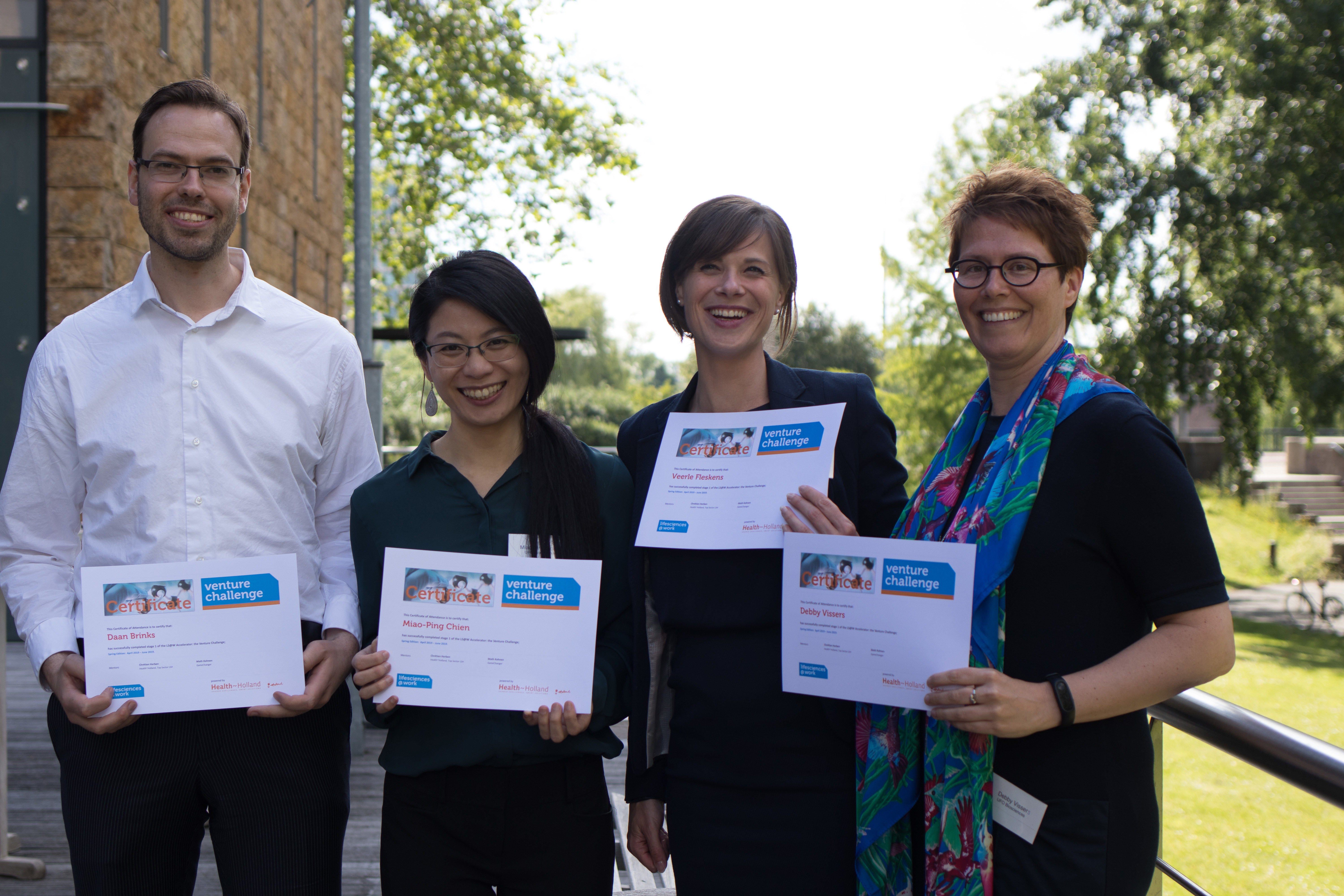The Life Sciences at Work Venture Challenge is a 10-week programme to develop an initial idea – a breakthrough research result – into a solid business case. Miao-Ping Chien is an Oncode Investigator and group leader at Erasmus MC. Oncode Institute and Erasmus MC jointly invested in enabling Miao and her team to participate in the Venture Challenge. Her business idea was selected as one of the five that could join the program. Oncode Institute talks to her about the insights she gained following this program.
How did you enrol in the Venture Challenge?
“I joined Oncode Institute at the beginning of 2019. A month before, I had filed a patent with Erasmus MC Technology Transfer Office (TTO) for a new technology that I developed in my group. During the introductory meeting at Oncode, I mentioned that I really wanted to further valorize my technology. Shortly after that meeting Veerle Fleskens, Business Developer at Oncode, reached out to the TTO at Erasmus MC to talk about the possibility of applying for the Venture Challenge. And so we did.”
What is unique about the technology you developed?
“Despite decades of research and billions of dollars spent, 50% of cancer patients still die because of incomplete eradication of heterogeneous tumours. In particular the existence of rare, aggressive, cancer-driving cells causes therapy resistance and treatment failure. Current technology fails to accurately identify, isolate and profile these rare cells, thereby severely hampering development of effective cancer treatments. Our team developed a technology for automated, high throughput screening and selection of specific single cells exhibiting dynamic cancer-driving phenotypes.”
What impact will this technology have on cancer research?
“If we are able to profile the cells of interest that behave abnormally, we might be able to find certain behaviour patterns. Our microscope can process 2D and 3D samples and allows high-resolution analysis of true single cells, differentiating us from currently available technology. By identifying, selecting and isolating single cells, this technology enables the identification of the important genes that are missed with current technology and hopefully allow us to identify new targets and enable development of new therapies.”

What is your most important learning from the Venture Challenge?
“You need to truly validate the technology you have developed. We want to eventually bring our technology to the market and the standard of validation and robustness of the technology in an industrial setting are different than in an academic setting. In addition, during the challenge we took a deep dive into questions like: How are you going to bring it to market? Is it worth it? Who are your customers? How are you going to make it sustainable? Following those discussions, we created a business strategy that we are going to implement in the coming period.”
How did you experience the support from Oncode Institute and the Erasmus MC?
“I received great support from Oncode and the Erasmus MC before, during and after the Venture Challenge. Veerle brought up the idea of attending the venture challenge. During the challenge, she and Debby Vissers from Erasmus MC were there the whole time and professionally helped the team draft the venture plan as well as shape up the business model and strategy. In addition, they opened up their network with potential future customers, investors and strategic partners to me. I was also linked to other Oncode Investigators who I could possibly collaborate with in the future. Their support was of great value to me and the team.”
And what’s next?
“Creating a company is not easy, we need resources in terms of budget and people and a solid strategy before the company even starts. Together, the TTO of Erasmus MC and Oncode Institute offer different types of support in this phase as well. They provide us with help from several external consultants like drug development experts and help us with ideas on who to collaborate within the scientific, clinical and Oncode communities. Basically, they help us to find out where to start. Together, we are now working on a plan to validate the technology and bring it to commercial readiness, and a strategy to really make this venture happen.”
Would you like to participate?
Are you an Oncode Researcher and do you have an idea for a potential spin-off? Please contact the Oncode Business Developer appointed to your group to discuss possibilities.